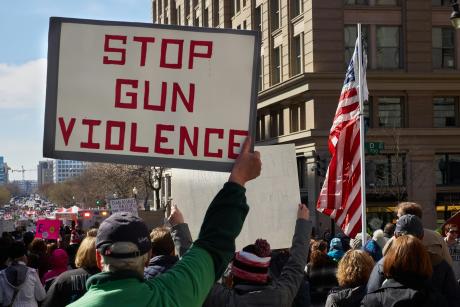
A "genderbread" person highlights the gradients of gender and sexuality. It was presented at the forum as a way to encourage participants to think differently about gender as a spectrum.
Published November 5, 2014, last updated on April 7, 2020 under Voices of DGHI
I didn’t quite know what to expect from the inaugural LGBTQ Latino health forum, hosted by El Centro Hispano. It was part health fair, part academic event- tables of resource centers and services lined the 2nd floor of the Holton Career and Resource Center. While the turnout was modest, one has the sense that this is an event that will continue to grow as the landscape of LGBTQ rights and immigration reform converge. The Supreme Court decision to not review marriage equality appeals, as well as the burgeoning frustration around our broken immigration system, exude the promise of potential gains for the LGBTQ & Latin@ communities. But much still has to be done. This forum was an important step in the right direction.
Many things struck me during the forum, even though we’ve been skirting around these topics for months in Juntos. I’ve never explicitly thought of sexuality as a spectrum, or a gradient. Simple black and white characterizations into “straight” or “gay” or “male” or “female” miss the contours and complexity of sexuality. Safe Schools NC gave a helpful graphic, aptly named a “gender-bread” man about how people’s conceptions around sexuality changes. Safe Schools also presented an interesting talk on bullying and language. The presenters noted how phrases like “That’s so gay” can erode a safe place for LGBTQ youth. In fact, the statistics show that many LGBTQ youth don’t feel comfortable in schools. Marriage Equality NC, another forum particpant, noted that achieving marriage equality in the Courts hardly means anything. In North Carolina, you can still get fired for being gay or transgender in the workplace. That’s so shocking that it seems like it has to be illegal. But, it’s not explicitly protected. So while the DOMA decision was important, there is still a long road ahead to achieving more open work environments and equitable policies for LGBTQ individuals.
The most poignant talk was from the keynote speaker, Moises Serrano. Serrano’s young, only 24, but is one of the key faces of immigration reform and LGBTQ movements. As an undocumented adult, he’s helped organize people and communities with El Cambio and GetEQUAL. He’s also the focus of an upcoming documentary about his own identity, which is at the crossroads of two marginalized populations. What’s even more remarkable is that most of his organizing took place when he was in his early 20s, as he’s now a full time student at Sarah Lawrence College. He noted that LGBTQ activists have been on the forefront of advocacy work for many different causes.
Serrano praised the work of El Centro, noting that “national role-models don’t work on a local level.” He stressed that the work of El Centro, and other similar places, drives movements forwards because they offer the most tangible link to a cause. It was a powerful call to action, but also an affirmation about the importance of an open and receptive community center. Even with modest resources and a modest turnout, El Centro’s impact is tremendous. I can only imagine how much larger this forum will be next year.


